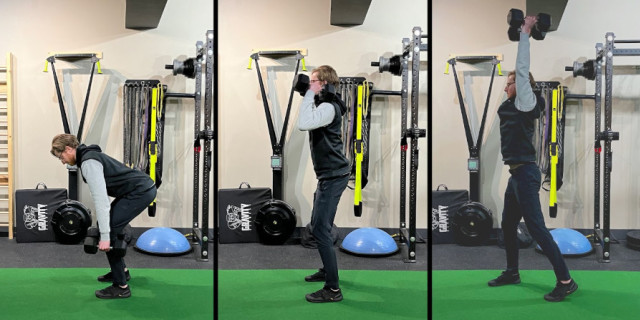
Advice For Golfers Who Are New to Competitive Golf
Part of any golfer’s development will be an introduction to the competitive side of the sport. It can be a daunting proposition suddenly realising that every shot does count, and there’s no ability to hit a couple of practice shots throughout the round. There’s also plenty of new rules to follow when it comes to scoring and playing your part in the overall competition.
Congratulations if you are considering taking your game to the next level by entering your first competition, and if you need a few pointers, check out our best tips for entering your first golf tournament.
Be Aware of The Format
The first thing to work out before you head to the first tee is the format of the competition itself. For the purposes of this article, we’re going to generally stick to individual competitions, which will generally be categorised into two main types of play; medal and stableford.
Medal golf is perhaps the toughest to play but easiest to understand. You simply play the full 18-holes, finishing each hole in turn, write down your overall (gross) score, and then at the end add the numbers up! You’ll first get a gross number, which you can then subtract your handicap from to give you your nett score. So, a player taking 90 shots, with an 18 handicap, will have a nett score of 72. The winner of the majority of club competitions will be the player with the lower nett score, although clubs will often also reward the lowest gross totals - i.e., the player that shoots the lowest overall number on the day.
Stableford is a little more confusing, but becomes relatively simple after a few tournaments. Golfers get 1 point for each nett bogey, 2 points for each nett par, 3 points for each nett birdie, and 4 points for each nett eagle. A golfer with an 18 handicap will get 1 shot on each hole. This means, an 18 handicap golfer scoring a gross 5 (bogey) on a par-4 hole, will actually see that score reduced to a nett par, and thus earn them 2 points for this hole. At the end of the round, count all the points up and this will be your total. Playing to your handicap will result in 36 points, 2 points on each hole.
If this all sounds a little daunting, fear not. By simply recording your gross score, your professional or indeed the computer that you enter your scores in should be able to do the rest. And when in doubt, you’ll find your fellow golfers can be very helpful!

Understand The Rules
The general rules in competitions shouldn’t differ that much from your normal rounds. However, it is worth reiterating that you shouldn’t move your ball out on the course (perhaps into a better lie!), there’s no mulligans, and you should play each hole out to its conclusion. The only exception here is within a Stableford if you’re no longer able to score on the hole (by making a nett bogey), it is acceptable to pick your ball up and move on to the next hole.
There are some procedural things to be taken care of, such as ensuring your scorecard is properly filled out, with your handicap and signature visible (as well as your name!). For a first competition though, it’s more than acceptable to ask for a little assistance here.
Get to Grips With Your Handicap
The introduction of the World Handicap System has made things slightly more confusing for some golfers, ironically, perhaps more so for those that have played the sport for the longest! With this new system you will have a Handicap Index (for example 18.0). However, this will adjust in line with the difficulty of the course you’re playing, giving you a Course Handicap. Finally, you will have a Playing Handicap - this last one is the number to focus on, and will often be the same as your Course Handicap. This takes into account the actual competition taking place, and makes allowances for things like different tee boxes being used in the competition, or men and women competing against each other.
Manage Your Expectations
Once you’ve got your handicap sorted, it’s time to go and break the course record! Well probably not. It’s massively important to set your expectations accordingly - particularly in your first few competitions. As a general rule of thumb, anything over 30 stableford points would be exceedingly good in your first few competitions, with it being more than admiral for simply completing all 18-holes to the best of your ability.
If you’re going to set some expectations, might we suggest something non-score based. A goal such as “fully commit to each shot”, or “make sure to complete your practice swing properly” would be a much better target, versus getting fixated on a score!
Play Within Yourself
Linked to our previous suggestion, we’d strongly advise trying to play within yourself. This is true for golfers of all abilities, but even more so for those new to competition. If you have never hit the ball 230 yards in the air, over a pond to a small green, perhaps now isn’t the best time to try to do this for the first time! Your handicap is there to help you score, not to bail you out of trouble after attempting miracle shot after miracle shot.
The average handicap in the UK continues to see golfers get at least one shot on every hole, that means that a score of 36 stableford points, or level par nett, is more than achievable by reaching every par-3 in two shots, every par-4 in three shots, and every par-5 in four shots. There’s no need for being the hero!
Treat Each Event As An Opportunity to Learn
It’s tough to replicate the sort of pressure that you might feel when competing in your first competitions. You’ll learn more about your game, and how it holds up - as well as potentially a little about yourself too! Try and take on board how you react to both good and bad shots, and use this for future events too. The more you compete, the more likely you are to feel comfortable, and so don’t be put off by some first tee nerves in your first competition!
Have Fun!
Finally, and most importantly, try and have fun. Playing in a competition is something that you’ve chosen to do, potentially with friends, or with new connections who may become friends after 4-hours on a golf course with them. Nobody cares as much as you about your own score, so don’t get too hung up on the bad rounds - we’ll all have them. In the long run, it’s much better to be thought of as an enjoyable on course companion than a PGA TOUR player in waiting …
Related Content
How to Improve Your Scores in The Monthly Medal
Tags: GOLFERS Golf daily picks









